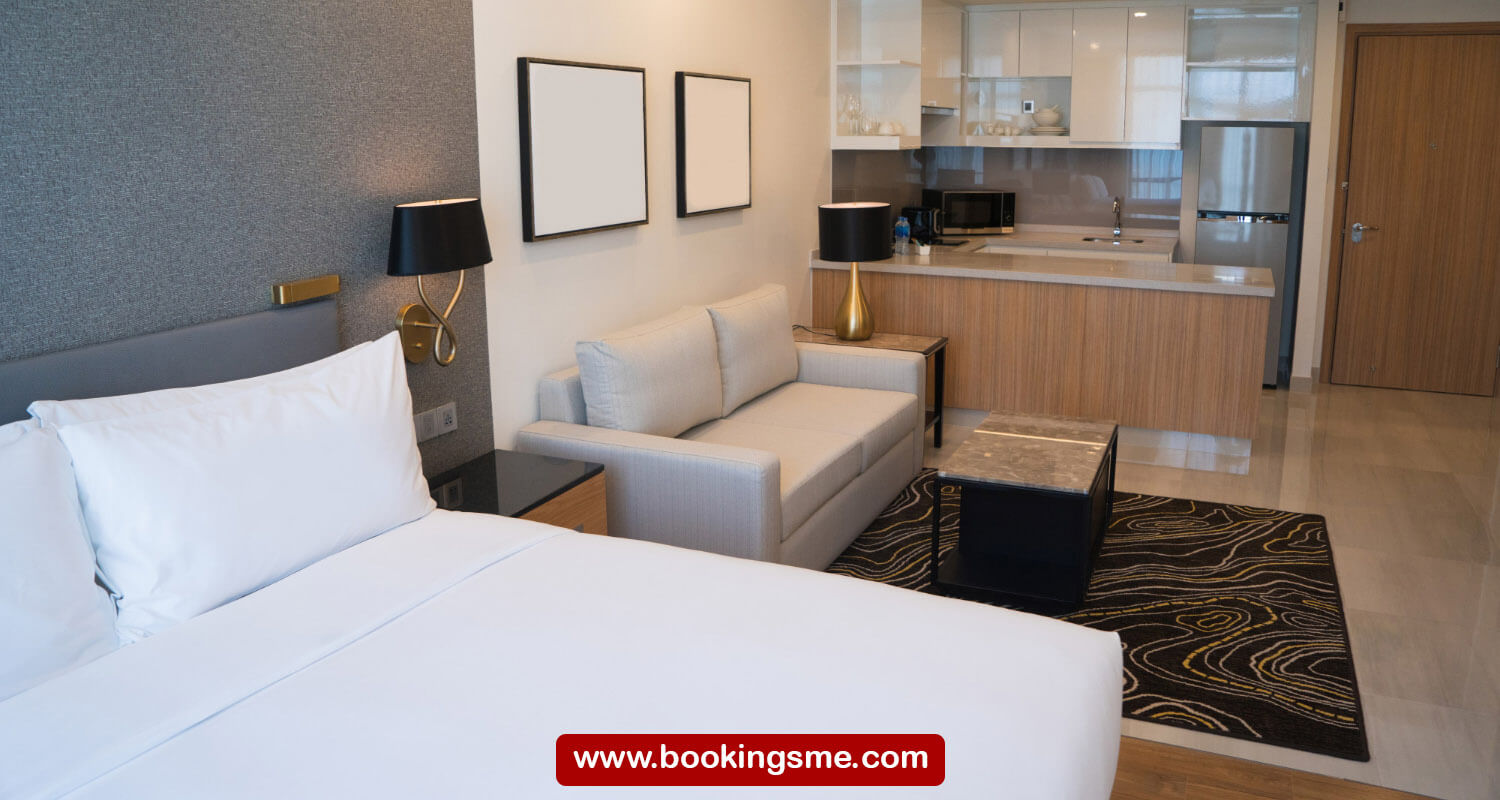Studio apartments have become increasingly popular in urban areas, offering a compact yet functional living space for individuals and couples. However, the decision to invest in a studio apartment requires careful consideration of the advantages and disadvantages it presents.
In this article, we delve into the pros and cons of studio living to help you determine whether it’s are studio apartments worth it for your lifestyle and needs.
Read also: Are Studio Apartments Cheaper
Pros of Studio Apartments
- Affordability:
One of the primary attractions of studio apartments is their affordability compared to larger living spaces. With a single room encompassing all essential areas, including the bedroom, living room, and kitchenette, studio apartments typically come with lower rental or purchase prices. This makes them an appealing option for individuals seeking budget-friendly housing solutions, especially in expensive urban areas where larger apartments may be financially out of reach.
- Low Maintenance:
Another advantage of studio living is the minimal maintenance required. With a smaller footprint and fewer rooms to clean and maintain, occupants can save both time and effort on household chores. Additionally, the compact layout encourages efficient organization and decluttering, fostering a simpler and more manageable living environment.
- Cozy Atmosphere:
Despite their limited square footage, studio apartments offer a cozy and intimate atmosphere that many individuals find appealing. The close proximity of living, sleeping, and dining areas can create a sense of coziness and comfort, making the space feel more inviting and homely. For those who prefer a snug and intimate living environment, a studio apartment can provide the perfect retreat.
- Location Benefits:
Studio apartments are often located in prime urban locations, offering convenient access to amenities, entertainment venues, and public transportation. For individuals who value proximity to city centers, workplaces, and cultural attractions, the location advantages of studio living can outweigh the trade-offs of limited space. Additionally, living in a central location may lead to cost savings on transportation expenses and commuting time.

Cons of Studio Apartments
- Limited Space:
The most significant drawback of studio living is the limited amount of space available. With all living functions condensed into a single room, occupants may struggle with storage limitations and a lack of privacy. Furniture arrangements must be carefully considered to maximize space utilization, and creative storage solutions are often necessary to maintain an organized living environment.
- Lack of Privacy:
Privacy can be a concern in studio apartments, as there are no separate rooms to retreat to for solitude. Activities such as cooking, entertaining guests, and sleeping all take place within the same space, potentially leading to a lack of personal privacy. This can be particularly challenging for couples or individuals who value their alone time and prefer separate living areas for different activities.
- Limited Hosting Opportunities:
Hosting guests in a studio apartment can be challenging due to space constraints. While small gatherings may be feasible, hosting larger gatherings or overnight guests can be impractical or uncomfortable. Limited seating options and a lack of separate entertaining areas can restrict the ability to entertain guests, which may be a drawback for individuals who enjoy hosting social gatherings.
- Potential Resale Value:
From an investment perspective, studio apartments may have lower resale value compared to larger properties. While they may appeal to certain demographics such as young professionals or students, the limited space and potential lack of amenities may deter some buyers. Additionally, market fluctuations and shifts in housing preferences can impact the resale value of studio apartments over time.
Read more: One Bedroom Apartment for Rent
Conclusion
In conclusion, are studio apartments worth it, the decision to invest in a studio apartment hinges on individual preferences, lifestyle factors, and financial considerations. While studio living offers affordability, low maintenance, and a cozy atmosphere, it also comes with limitations such as limited space, privacy concerns, and restricted hosting opportunities.
Ultimately, weighing the pros and cons is essential to determine whether a studio apartment aligns with your needs and preferences. By carefully evaluating the trade-offs, you can make an informed decision about whether studio living is worth it for you.
What is a studio apartment?
A studio apartment, also known as a bachelor or efficiency apartment, is a self-contained living space that typically consists of a single room serving as the bedroom, living room, and kitchenette, along with a separate bathroom. It is designed to provide all essential living functions within a compact footprint.
How do I make the most of a small studio apartment?
To optimize space in a small studio apartment, consider utilizing multifunctional furniture, maximizing vertical storage, and strategically organizing belongings to minimize clutter. Additionally, experiment with room layouts and decor choices to create a sense of openness and functionality within the space.
Are studio apartments suitable for couples or families?
While studio apartments can be suitable for couples or small families, they may present challenges in terms of privacy and space limitations. Couples or families considering studio living should carefully evaluate their lifestyle needs and preferences to determine if the benefits outweigh the potential drawbacks of limited space.
What are the pros and cons of living in a studio apartment?
The pros of studio living include affordability, low maintenance, and a cozy atmosphere, while the cons may include limited space, privacy concerns, and restricted hosting opportunities. Ultimately, the decision to live in a studio apartment depends on individual preferences, lifestyle factors, and financial considerations.
How can I create privacy in a studio apartment?
Creating privacy in a studio apartment can be achieved through various methods, such as using room dividers, curtains, or furniture arrangements to delineate different living areas. Additionally, establishing boundaries and communication with roommates or partners can help ensure everyone’s need for personal space and privacy is respected within the shared environment.

